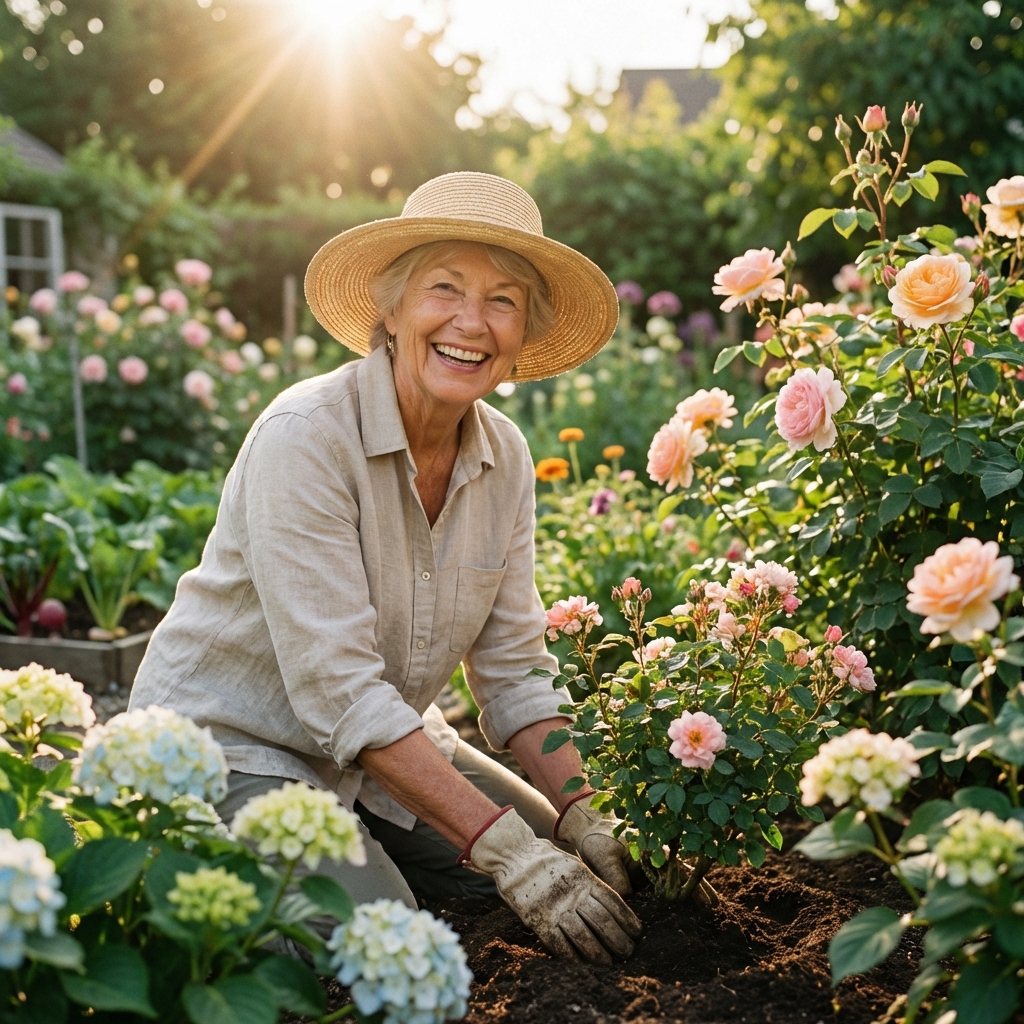How to Live Alone Safely After 70: A Practical Guide to Independence
Discover practical, proven strategies used by thousands to maintain independence safely and with complete peace of mind.

Aging gracefully often means embracing independence, and for many, that includes living alone. While it offers unparalleled freedom, it also comes with unique considerations. This comprehensive guide provides practical tips to empower seniors over 70 to live alone confidently.
1 Create a Safe Living Space
Your home should be your sanctuary. Small adjustments can significantly reduce the risk of falls, a major concern for independent seniors.
Remove Tipping Hazards
Secure loose rugs with non-slip pads and tuck away electrical cords.
Bathroom Safety
Install grab bars near the toilet and shower. Use non-slip mats.
Lighting
Install motion-sensor lights in hallways for night-time visibility.
2 Manage Health and Medications
Proactive health management is crucial for independent living. Staying on top of your medical needs ensures you remain healthy and reduces the likelihood of unforeseen emergencies.
- Use pill reminders or digital apps: Forgetting medication can have serious consequences. Utilize weekly pill organizers, set alarms on your phone, or use dedicated medication reminder apps to ensure you take the right dose at the right time.
- Maintain regular doctor visits: Consistent check-ups and preventative screenings are vital for early detection and management of health issues. Don't skip these appointments, even if you feel fine.
- Keep an updated list of medications: Have a readily accessible list of all your medications (prescription and over-the-counter), dosages, and any allergies. This is invaluable information for emergency responders or new healthcare providers.
- Watch for signs of depression or forgetfulness: Mental well-being is as important as physical health. If you notice persistent feelings of sadness, changes in sleep or appetite, or increasing forgetfulness, talk to your doctor. Social connection and mental stimulation can help.
3 Use Technology for Safety
Technology has revolutionized safety for seniors, offering solutions that range from simple communication tools to advanced monitoring systems. Embracing these tools can significantly enhance your independence and security.
- Daily Safety Check-Ins: Apps like DailyOK are designed for seniors. They offer a simple, non-intrusive way to let loved ones know you're okay. You tap once to confirm your well-being. If you miss a check-in, an alert is sent. It's peace of mind without cameras.
- Consider medical alert wearables: Devices like personal emergency response systems (PERS) or smartwatches with fall detection can automatically alert emergency services or contacts if a fall occurs. Many come with a push-button for immediate help.
- Use video calling to stay connected: Platforms like FaceTime, WhatsApp Video, or Zoom allow you to see and speak with family and friends regularly, combating loneliness and ensuring loved ones can visually check in on you.
- Add a smart doorbell for extra security: A smart doorbell lets you see and speak to visitors from anywhere, even when you're not home. This adds a layer of security, allowing you to screen callers before opening the door.
5 Prepare for Emergencies
Even with careful planning, emergencies can happen. Having a clear, actionable plan in place can make all the difference in a critical situation.
- Keep emergency numbers posted: Clearly write down and display essential phone numbers: family, doctors, neighbors, and emergency services (e.g., 911/999). Keep them by every phone and easily visible.
- Share keys with someone trusted: Provide a spare set of keys to a trusted neighbor, family member, or friend who lives nearby. Ensure they know your emergency contacts and basic health information.
- Have a safety plan for falls or illness: Think through "what if" scenarios. What will you do if you fall and can't get up? How will you signal for help if you feel suddenly ill? Discuss this with your emergency contacts.
- Always carry a phone or alert device: Even within your home, keep your mobile phone or a personal alert device on you, or within arm's reach. Many falls happen in unexpected places like hallways or kitchens.
Living Alone Safety Checklist
73% of seniors prefer aging in place. To do so safely, having a reliable safety net is key. DailyOK provides that safety net with a simple daily check-in on your phone.
- No cameras or listening devices
- Alerts family only if you need help
- Works on any smartphone
"It gives my daughter peace of mind knowing I'm okay every morning."
— Robert, 74
Final Thoughts
Living alone after 70 can be a deeply rewarding experience, filled with independence and personal freedom. By proactively creating a safe home environment, managing your health, leveraging modern technology, nurturing your social connections, and preparing for any eventuality, you can maintain your autonomy with confidence. Tools like the Daily Check-In App are designed to support this independence, offering a simple yet powerful way to stay connected and secure, giving both you and your loved ones invaluable peace of mind.

About the Author
Dr. Emily Clarkson, Gerontology Specialist
Dr. Emily Clarkson is a leading expert in gerontology with over 20 years of experience helping seniors navigate independent living. Her work focuses on practical strategies for safety, well-being, and leveraging technology to enhance the quality of life for older adults.
4 Build a Strong Social Network
While living alone, maintaining an active social life is vital for mental health and emergency support. Loneliness can be as detrimental to health as physical ailments.